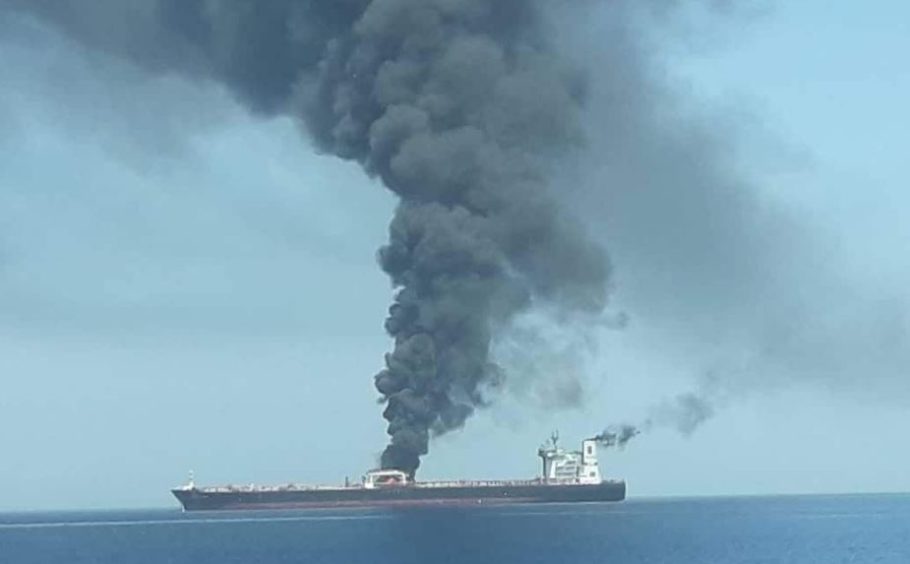
Britain is currently backing the US in its assessment that Iran is responsible for suspected attacks on two oil tankers in the Gulf of Oman, the Foreign Secretary has said.
Jeremy Hunt warned Tehran that, if it is proven to be behind the incident, it would be a “deeply unwise escalation which poses a real danger to the prospects of peace and stability in the region”.
The price of oil rocketed on Thursday amid fears of disruption to one of the world’s most important tanker routes as a result of an escalation in the region.
In the early hours of Friday morning, the US military released a video said to show an unexploded limpet mine being removed from the Kokuka Courageous, one of the tankers attacked in the Gulf.
The black-and-white footage captured by a US aircraft shows a boat, said to be a Revolutionary Guard patrol ship, approaching the tanker.
Iran rejected accusations by US secretary of state Mike Pompeo that it was responsible based on intelligence and the expertise needed to carry out the operation.
Mr Hunt told the BBC: “This is deeply worrying and comes at a time of already huge tension. I have been in contact with (Mr) Pompeo and, while we will be making our own assessment soberly and carefully, our starting point is obviously to believe US allies.
“We are taking this extremely seriously and my message to Iran is that if they have been involved, it is a deeply unwise escalation which poses a real danger to the prospects of peace and stability in the region.”
Downing Street earlier called the suspected attacks “completely unacceptable”.
Mr Pompeo said on Twitter: “These attacks are a threat to international peace and security, a blatant assault on the freedom of navigation, and an unacceptable escalation of tension by Iran.”
However Iran’s foreign minister, Javad Zarif, hit back, writing on Twitter that the US had “immediately jumped to make allegations against Iran-w/o a shred of factual or circumstantial evidence”.
An alert urging “extreme caution” was issued by the Navy-run United Kingdom Maritime Trade Operations on Thursday morning following reports of explosions.
In a commentary accompanying the video, US Central Command (Centcom) said US naval forces in the region received two separate distress calls on Thursday morning local time.
One at 6.12am came from the Front Altair, loaded with flammable naphtha from the UAE, and a second one at 7am from the Kokuka Courageous, which was carrying methanol from Saudi Arabia and Qatar.
“Both vessels were in international waters in the Gulf of Oman approximately 10 nautical miles apart at the time of the distress calls,” Centcom said.
The USS Bainbridge, a guided missile destroyer, was around 40 nautical miles away and began approaching the area “immediately”.
At 8.09am a US aircraft saw an Islamic Revolutionary Guard Corps (IRGC) Hendijan class patrol boat and “multiple IRGC fast attack craft/fast inshore attack craft” approach in the vicinity of the Altair, Centcom said.
Just over an hour later the aircraft saw one of the IRGC boats pull in a raft from the Altair, it added.
According to Centcom the IRGC also ordered a boat that had rescued some of the sailors to turn them over.
Meanwhile, Centcom said the crew of the Kokuka Courageous had “abandoned their ship after discovering a probable unexploded limpet mine on their hull following an initial explosion”.
The crew were later taken aboard the Bainbridge after being rescued by a Dutch tug.
“At 4.10pm local time an IRGC Gashti Class patrol boat approached the Kokuka Courageous and was observed and recorded removing the unexploded limpet mine from the Kokuka Courageous,” Centcom said.
The suspected attacks come after four commercial ships were “subjected to sabotage operations” in the Arabian Gulf in May.